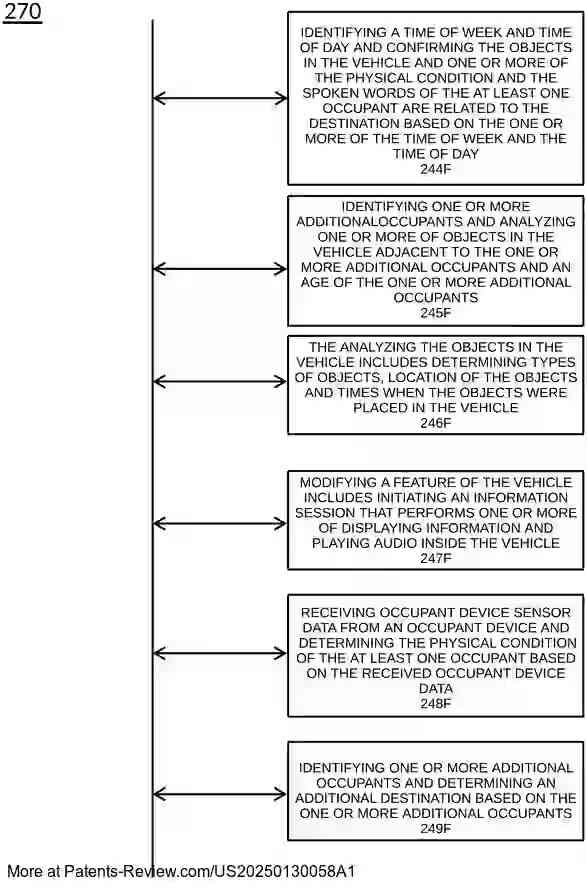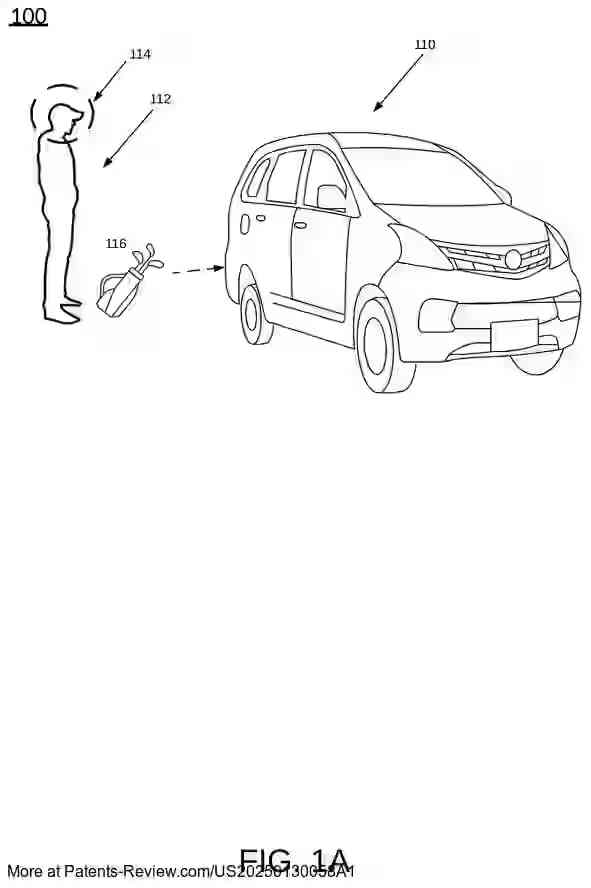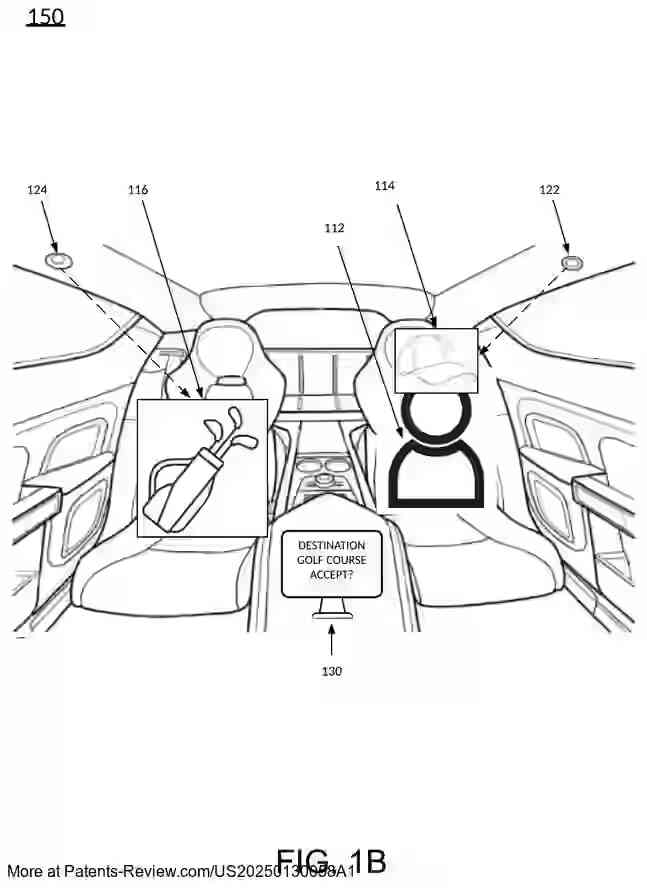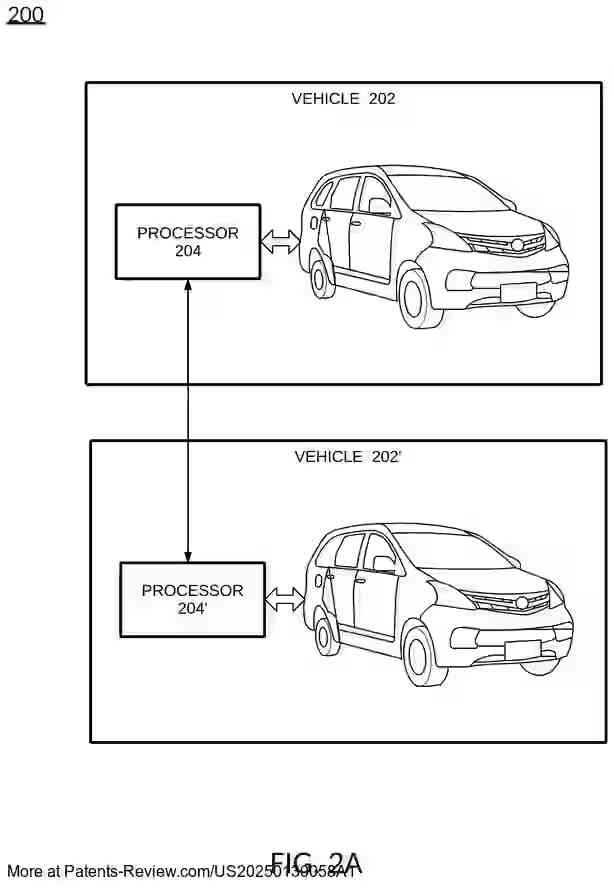VEHICLE MODIFICATIONS BASED ON A DETERMINED DESTINATION
US20250130058
2025-04-24
Physics
G01C21/3626
Inventors:
Assignees:
Applicant:
Drawings (4 of 26)




Smart overview of the Invention
The patent application introduces a method and system for modifying vehicle features based on determining a destination using sensors within the vehicle. These sensors analyze various aspects, including objects related to occupants, their physical condition, and spoken words. By processing this information, the system determines the vehicle's destination and accordingly modifies certain features to enhance the travel experience.
Background
Modern vehicles serve diverse transportation needs for people and goods. They are increasingly equipped with computing devices, such as smartphones or onboard computers, that can interact with various functions of the vehicle. These technologies enable vehicles to communicate with external devices and systems, enhancing functionality and user experience.
Summary of Embodiments
The application outlines multiple embodiments, including a method, system, and computer-readable medium. Each embodiment involves analyzing in-vehicle data to determine a destination and subsequently adjusting vehicle features based on this analysis. The system comprises a memory linked to a processor that performs these tasks, ensuring adaptive responses to changing conditions within the vehicle.
Detailed Description
The components described can be configured in numerous ways without limiting the scope of the invention. Communications may occur between vehicles and various entities like remote servers or local devices, facilitated by hardware or software components. The application also explores potential integration with blockchain technology for secure data management and transactions.
Applications and Integration
The described technology can be implemented across various transport modes, including cars, trucks, motorcycles, planes, and more. It supports both permissioned and permissionless blockchain environments for data integrity. The use of smart contracts ensures secure and reliable operations within distributed ledger systems, enabling trusted interactions among network participants.